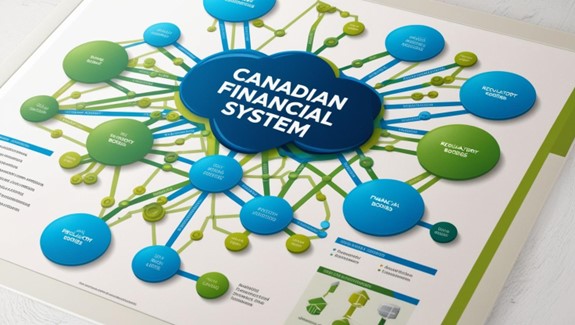FINANCIAL COUNSELLING FOR NEW IMMIGRANTS IN CANADA
Moving to a new country can be both exciting and intimidating, especially when it comes to managing your finances. As a new immigrant in Canada, it’s essential to understand the financial landscape and make informed decisions to secure your economic future. In this blog, we’ll provide a comprehensive guide to financial counselling for new immigrants in Canada, covering key aspects of personal finance, financial planning , and wealth management.
UNDERSTANDING THE CANADIAN FINANCIAL SYSTEM

Before diving into financial counselling, it’s crucial to understand the Canadian financial system. Here are some key aspects to consider:
- Banking System: Canada has a well-established banking system with various financial institutions offering a range of services. Research and compare banks to find the best fit for your needs.
- Credit Scoring: In Canada, credit scores range from 300 to 900. A good credit score can help you access better interest rates and credit products.
- Taxes: Canada has a progressive tax system, with taxes deducted from your income. Understand your tax obligations and claim eligible deductions.
- Investment Options: Familiarize yourself with investment options such as registered retirement savings plans (RRSPs), tax-free savings accounts (TFSAs), and other investment vehicles.
KEY PRINCIPLES OF FINANCIAL COUNSELLING

- Budgeting: Create a budget that accounts for your income, expenses, and savings goals. Allocate 50-30-20: 50% for necessities, 30% for discretionary spending, and 20% for saving and debt repayment.
- Emergency Fund: Save 3-6 months’ worth of living expenses in an easily accessible savings account.
- Debt Management: Prioritize high-interest debt repayment and consider consolidating debt into lower-interest loans or credit cards.
- Investment Strategy: Develop a diversified investment portfolio that aligns with your risk tolerance and financial goals.
- Tax Planning: Optimize your tax strategy by utilizing tax-advantaged accounts and claiming eligible deductions.
- Invest In Yourself: Develop new skills, pursue education or certifications, and build a professional network to enhance your earning potential.
- Avoid Lifestyle Inflation: As your income increases, avoid the temptation to inflate your lifestyle by spending more on luxuries. Instead, direct excess funds towards savings and debt repayment.
- Seek Professional Advice: Consult a financial advisor or planner to create a personalized financial plan tailored to your needs.
FINANCIAL COUNSELLING FOR NEW IMMIGRANTS
- Understand Your Immigration Status: Familiarize yourself with your immigration status and its implications on your finances.
- Access Newcomer Resources: Utilize resources like the Canadian Immigration Integration Program (CIIP) and settlement services to help you navigate the financial system.
- Build a Credit History: Apply for a secured credit card or become an authorized user on someone else’s credit account to establish a credit history.
- Network and Build Connections: Attend community events, join professional organizations, and connect with fellow immigrants to build a support network.
COMMON FINANCIAL CHALLENGES FOR NEW IMMIGRANTS

- Language Barriers: Overcome language barriers by seeking financial advice from professionals who speak your language.
- Cultural Differences: Understand the cultural differences in financial practices and adapt to Canadian norms.
- Lack of Credit History: Establish a credit history by applying for a secured credit card or becoming an authorized user on someone else’s credit account.
- Job Search: Develop a job search strategy and update your resume to increase your chances of finding employment.
CONCLUSION
Financial counselling for new immigrants in Canada requires a comprehensive approach. By understanding the Canadian financial system, budgeting, building an emergency fund, and investing wisely, you’ll be well on your way to securing your financial future. Remember to take advantage of tax-advantaged accounts, invest in yourself, and avoid lifestyle inflation. Don’t hesitate to seek professional advice and utilize newcomer resources to ensure a smooth transition.
ADDITIONAL RESOURCES
- Canadian Bankers Association: A comprehensive guide to banking in Canada.
- Credit Counselling Canada: Expert advice on managing debt and credit.
- Canada Revenue Agency: Information on taxes, benefits, and credits.
- Investment Industry Regulatory Organization of Canada: Insights on investing and financial planning.
By following these key principles and seeking professional guidance you’ll be empowered to make informed financial decisions and achieve your goals in Canada.
About Author
Shanel John is a dedicated Certified Public Accountant (CPA) at G.L.H. Accounting, specializing in Income Tax with over 10 years of experience. Based in Brampton, Ontario, Canada, Shanel offers expertise in tax preparation, financial accounting, and advisory services. A certified QBO Pro Advisor, Shanel’s decade-long experience and knowledge make her a trusted figure in the accounting field.

